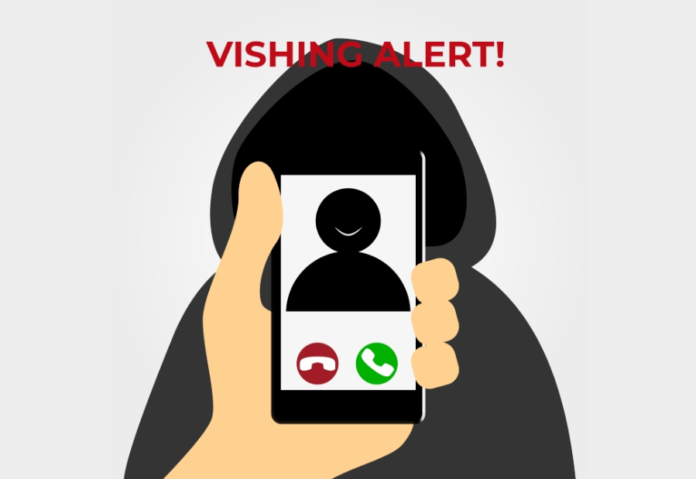Concerns have been raised by recent cybersecurity advice on a rise in “vishing” assaults directed at public servants. According to the National Informatics Centre (NIC) recommendation, officials should not rely on caller ID information displayed during phone calls since hackers are employing strategies to conceal their identities and trick people into disclosing private information.
Attackers are utilizing caller ID spoofing to make calls look like they are coming from real government numbers, according to the advice, which has been rated as “high” in severity. This strategy has been connected to an increasing number of vishing attacks that try to obtain illegal access to government networks and compromise private and sensitive data.
What Is Vishing and How It Works
Voice-phishing, also known as vishing, is a form of social engineering attack in which con artists utilize voice messages or phone calls to fool victims into divulging private information, including financial information, login passwords, and personal information. According to the advise, by threatening dire repercussions for non-compliance, these attackers frequently instill a sense of urgency or pressure on their targets, forcing them to comply. Additionally, they could frighten or confuse victims with intricate technical jargon, increasing the likelihood that they would fall for the hoax.
Key Recommendations for Government Officials
To assist government officials in avoiding becoming targets of these assaults, the NIC has released a number of recommendations:
- Because caller ID information is easily spoofable, officials should not rely on it.
- It is recommended that they verify any caller claiming to be from an official agency by consulting official documents.
- Before sharing any sensitive information, officials must use formal channels to confirm the caller’s identity.
- According to the advice, government workers should verify the legality of the conversation by calling the company or person again using contact details that are open to the public.
- Unsolicited calls requesting private or sensitive information should raise suspicions among officials, particularly if they generate panic or a sense of urgency.
- The NIC stresses that government employees should always adhere to established guidelines for secure online interactions in both personal and professional contexts.
Government officials are strongly reminded by the warning of the constantly changing nature of cyberthreats and the significance of protecting private data from malevolent individuals.
Also read: Viksit Workforce for a Viksit Bharat
Do Follow: CIO News LinkedIn Account | CIO News Facebook | CIO News Youtube | CIO News Twitter
About us:
CIO News is the premier platform dedicated to delivering the latest news, updates, and insights from the CIO industry. As a trusted source in the technology and IT sector, we provide a comprehensive resource for executives and professionals seeking to stay informed and ahead of the curve. With a focus on cutting-edge developments and trends, CIO News serves as your go-to destination for staying abreast of the rapidly evolving landscape of technology and IT. Founded in June 2020, CIO News has rapidly evolved with ambitious growth plans to expand globally, targeting markets in the Middle East & Africa, ASEAN, USA, and the UK.






